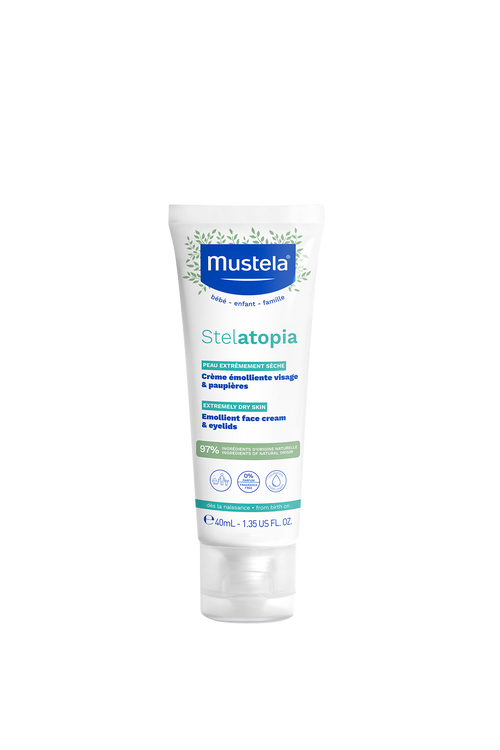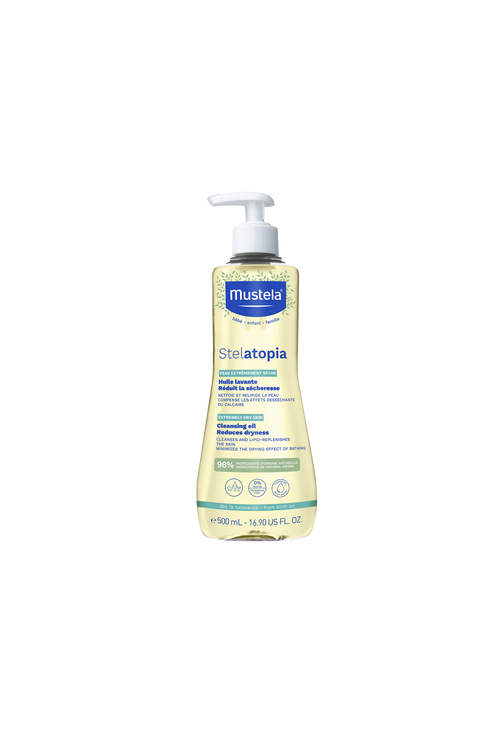Written in partnership with Dr. Clarence De BELILOVSKY, Dermatologist and member of the Mustela circle of experts.
SIGNS THAT DON'T DECEIVE
A few months after birth, is your baby's skin rather dry and even a little red? Do you or your partner suffer from atopic eczema? You don't need to wait any longer to adopt certain habits from the moment your child is born, habits that could well become synonymous with pleasure and comfort. And in this case, "prevention is better than cure!" Because while atopic eczema is primarily hereditary, we can still take action and make life more difficult for it. For this, two key words: "prevent and treat."
ATOPIC DERMATITIS PREVENTION IN BABIES AND SKIN CARE
As we know, dry skin is more permeable and allows allergens to penetrate, contributing to atopic eczema. To repair dry skin, and more specifically its skin barrier, we need to restore its protective function. It's also important to remember that well-hydrated skin is less prone to irritation. To achieve this, apply emollient products. In addition to containing all the ingredients of an effective moisturizer, these products primarily include lipids that restore the essential layer of oil on the skin's surface.
It becomes softer, more resilient… It's even proven: when applied from birth, emollient treatments can reduce the risk of developing symptoms of atopic eczema by 33% to 50%.<sup>1</sup> It would be a shame to miss out! For greater effectiveness, choose products specifically formulated for your baby's delicate skin. Indeed, if you find it incredibly soft and can't stop stroking it, it hasn't yet reached maturity.
Its dermis is three times thinner and much more permeable (which requires even more caution in cases of atopic eczema)... It will take three years for it to acquire the same functions as an adult's. All the more reason to turn to specific baby-child formulas designed for these particularities, which you can apply without worry from your child's first days.
ECZEMA, ATOPIA, REDNESS: PREVENTION TIPS
Avoid anything that, on a daily basis, can trigger atopic eczema. This includes: allergens such as dust mites or dust, drying or irritating factors such as soap, certain rough clothing materials, very dry air, excessively high temperatures… Of course, it's not always easy to anticipate everything, and there's no need to panic if your baby is too hot or loves to snuggle up to you when you're wearing your beautiful, seemingly so soft wool sweater…
It's simply a matter of remaining vigilant and minimizing exposure to certain environments or activities as much as possible. If your child loves splashing around, a small drop of Stelatopia bath oil in their bath or an inflatable pool filled with chlorine-free water can be just as enjoyable while reducing the risk of irritation (from hard water). Nevertheless, there will be times in your baby's life when atopic eczema flares up. Don't panic! Here too, proper care will be their best friend. If necessary, you can also consult your doctor.
1 Source: Eric L. Simpson 2014, Horimukai 2014. 2 Read more about this: Living Well Every Day







